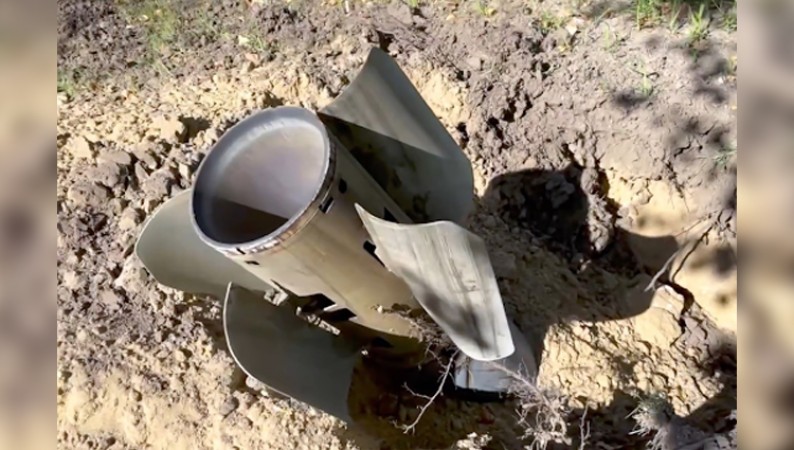
Ukraine: Ukraine reported heavy Russian shelling on the front lines on Tuesday as the two sides exchanged charges for a weekend attack on the Zaporizhzhya nuclear complex that raised concerns about a potential nuclear catastrophe around the world.
Fierce fighting was reportedly taking place in border towns near the eastern city of Donetsk. According to Ukrainian officials, Russian troops are launching a wave of attacks in an attempt to take control of the heavily industrialized Donbass region.
There is continuous firing on the front line and the situation is tense. According to the regional governor of Donetsk Pavlo Kirilenko, the enemy often launched air strikes.
"The enemy is failing miserably. The area of Donetsk is holding up.
In a YouTube video, Ukraine's presidential adviser Oleksey Erestovich said Ukrainian troops had taken the Russian-occupied town of Dovchenke, northeast around Kharkiv, and were moving towards Izium.
"The situation is very complex. The Ukrainian military is advancing with great success. Russia's attempts to make up the lost ground were unsuccessful. They may end up surrounded by Ukraine, he warned."
In an effort to cut off Russian supply routes, Ukrainian forces in the southeast once again targeted the important Antonovsky bridge across the Dnipro River in the Kherson region.
According to Yuri Sobolevsky, deputy head of the Kherson Regional Council, which was recaptured by Russian occupying forces, the bridge was severely damaged after an "overnight action".
Since Russia began its invasion of Ukraine on February 24, there have been 70,000 to 80,000 deaths or injuries in that country, according to Colin Kahl, the US Under Secretary of Defense for Policy. This is known in Russia as a "special military operation".
nuclear power plants
UN chief Antonio Guterres on Monday called on UN nuclear inspectors access to Zaporizhzhya, the largest nuclear power complex of its kind in Europe, calling any attack on the nuclear plant "suicidal".
Zaporizhzhia was located in southern Ukraine; It was attacked by Russian forces in March, during which the site was hit without causing any damage to its reactors. A Ukrainian counteroffensive is currently targeting the region, including Kherson.
Both the International Atomic Energy Agency, the United Nations nuclear watchdog, and the demilitarization of the area around the complex were requested by Ukraine. Russia claimed that it was also in favor of the IAEA visit and that Ukraine was blocking it.
The International Atomic Energy Agency (IAEA) has long complained that it must wait for permission to enter the plant, saying any deployment would require the support of both Moscow and Kyiv.
The weekend attack on the compound, which is still being managed by Ukrainian technicians, was blamed on both sides. Three radiation sensors were reportedly damaged, and two workers were hurt by shrapnel.
According to Petro Kotin, head of Ukraine's state nuclear power company Energoatom, 500 Russian soldiers and 50 pieces of heavy equipment, including tanks, trucks and armored infantry vehicles, were present at the site.
He demanded that peacekeepers take control of the plant and foresaw the possibility that the shells could strike six containers of highly radioactive spent nuclear fuel there.
According to Russia's Defense Ministry, Ukrainian attacks on the plant's power lines forced it to reduce production by two of its six reactors to "prevent disintegration".
Reuters was unable to independently confirm both sides' claim.
Ukraine's President Volodymyr Zelensky called for new Western sanctions against Russia's nuclear industry in an evening video posted online for "creating the risk of a nuclear disaster".
Dr Mark Weinmann, a nuclear specialist at Imperial College London, downplayed the possibility of a serious incident, saying that the Zaporizhzhya reactors were reasonably durable and that spent fuel was well preserved.
White House spokeswoman Karine Jean-Pierre said Washington continues to monitor activity closely, noting that US radiation sensors have "not detected any signs of increased or abnormal radiation levels."
The White House urged Russia to "stop all military operations in or near Ukrainian nuclear facilities and return full control of Ukraine."
As Moscow blamed Kyiv for the shelling, Kremlin spokesman Dmitry Peskov urged the West to pressure Ukraine's President Volodymyr Zelensky to stop the "highly dangerous activity".
According to Peskov, who spoke to Interfax news agency, we anticipate that nations that have full influence over the Ukrainian government will use it to prevent further shelling.
In May, direct talks between Moscow and Kyiv were halted, and there are currently no plans to resume them.
Ukraine Parliament unveils new sanctions on Russia
Ukraine seeks Germany's help in securing 8 billion euros from the EU
Zelensky forbids talks if Russia holds referendums on Ukraine's captured lands